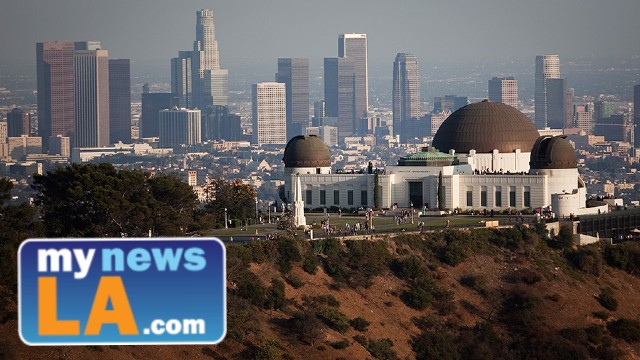City Councilwoman Eunisses Hernandez introduced a motion Tuesday seeking to address what she called Los Angeles’ failing infrastructure and to ensure city officials can maintain municipal infrastructure to meet industry standards.
Hernandez called for a comprehensive analysis of funding, staffing and resources needed to bolster sidewalks, streetlights, among other things. The motion, which was seconded by Councilwoman Katy Yaroslavsky, will be considered by the Public Works, Transportation and Government Operations committees before being taken up by the full council.
According to Hernandez, year-long wait times for streetlight repairs, tree-trimming services, addressing broken sidewalks and neglected storm drains are the direct results of decisions that were made in the wake of the Great Recession — when the city slashed funding to its core services.
Those cuts were never fully restored, leaving city departments and bureaus unable to keep pace with the basic needs of L.A. neighborhoods and residents.
“For years I have been sounding the alarm that budget mismanagement and short-term thinking are degrading our city and putting Angelenos at risk,” Hernandez said in a statement. “Our constituents shouldn’t have to wait a year for a streetlight to be fixed or risk injury walking down a broken sidewalk. These delays are unsafe, unsightly, inconvenient and cost the city millions of dollars in legal settlements every year.”
If approved, her motion would direct the Public Works and Transportation departments with support from the City Administrative Officer to report on what it would actually take to bring the city’s infrastructure up to industry standards. The report would include an analysis of adequate staffing levels, proper equipment, fleet capacity, yard facilities and a so-called “phased, five-year plan” to restore basic services.
The Department of General Services would be instructed to analyze fleet maintenance, repair and storage needs so that bureaus have the facilities and capacity to meet these goals.
“We cannot keep pretending we are saving money by deferring maintenance when in reality we are creating unsafe conditions, driving up long-term costs and leaving Angelenos literally in the dark,” Hernandez said in a statement. “The people of Los Angeles deserve a city that works. To not fight for that is a dereliction of duty.”
In the last five fiscal years, the city has paid more than $1 billion in liability payouts, according to a dashboard created by City Controller Kenneth Mejia’s office.
The city paid $166,518,355 in fiscal year 2022-23, $254,844,227 in 2023-24, and $281,044,718 in 2024-25 to address legal claims. These legal claims stem from issues from several departments, the top four being the Los Angeles Police Department, Street Services, Sanitation and Transportation.
City officials have reckoned with fiscal challenges as well.
In 2023, the city approved a more than $13 billion budget with nearly $600 million reserve fund to cover emergencies. The following year, city officials approved a roughly $12.9 billion budget, which closed a $467 million deficit caused by a tax shortfall, $289 million in liability payouts, and costly expenditures such as agreements with unions representing municipal employees and sworn personnel.
To close the gap, in part, city officials eliminated thousands of vacant positions from the city’s books.
Several departments had their operating budgets reduced as well, such as the Bureau of Street Services, Fire Department, Sanitation, City Controller, among others.
The roughly $14 billion 2025-26 budget closed a nearly $1 billion deficit as result of similar financial challenges, which were exacerbated by the Palisades Fire, skyrocketing liability payouts, and a decrease of state and federal funding. Mayor Karen Bass proposed laying off some 1,600 city workers, which was later reduced to 600 employees.
In September, Bass announced the city was able to avert all city layoffs as a result of negotiations with labor unions and by transferring some workers to Los Angeles World Airports, Port of Los Angeles and the Department of Water and Power. Those three entities are known as proprietary departments, whose budgets are not impacted by fluctuations in the general fund.
City Administrative Matt Szabo has previously projected the city will face a $91 million deficit in fiscal year 2026-27 with a general fund surplus to begin in 2027-28.
